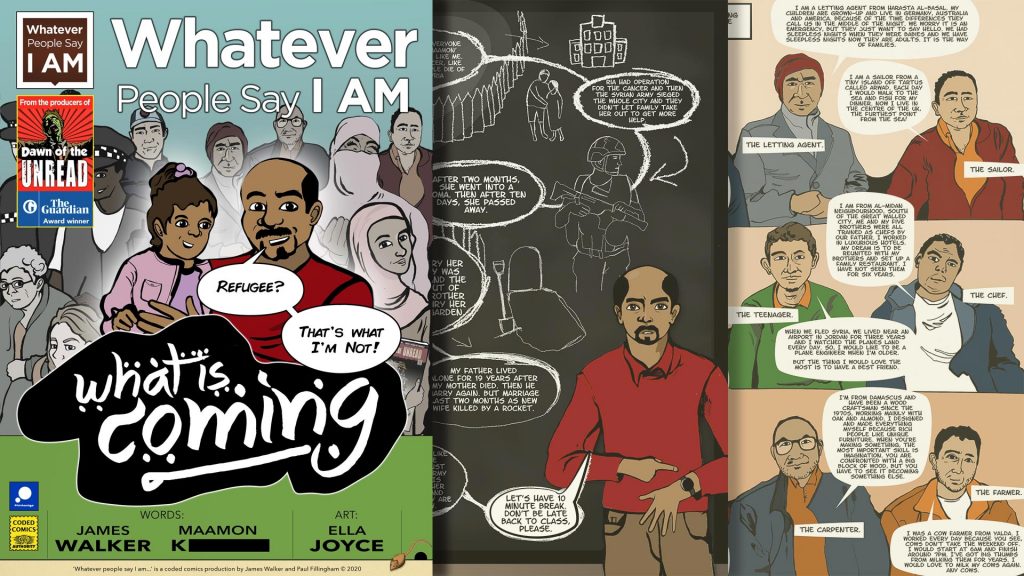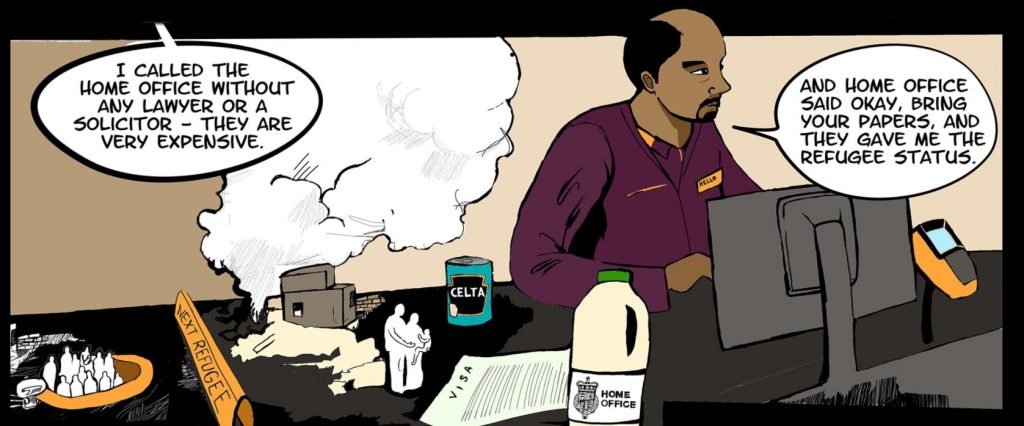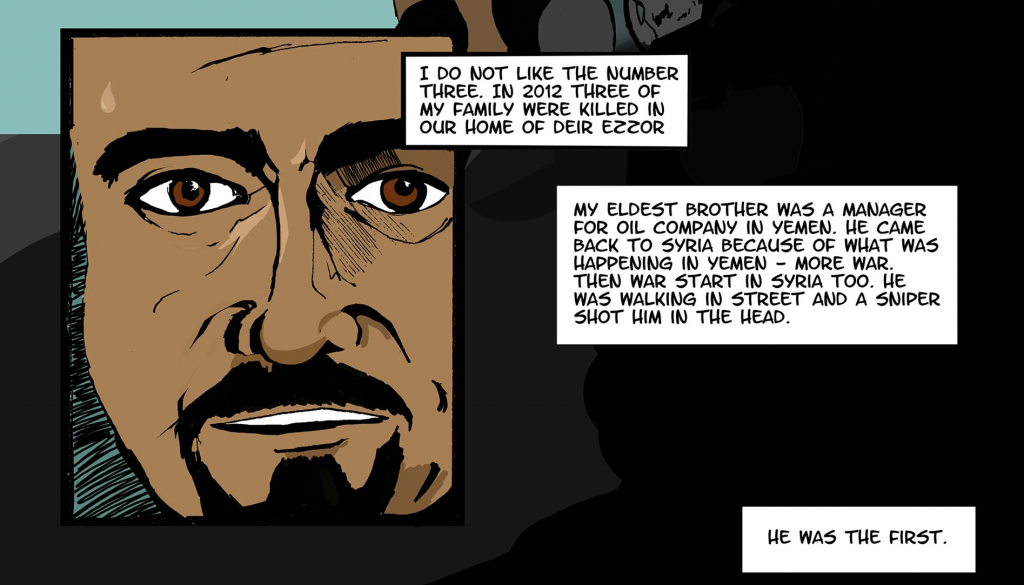
Image layout by Paul Fillingham

Artwork Ella Joyce. Words James Walker
I’m worried about the world we live in at the moment. From Brexit to Covid to the US elections, we’re becoming increasingly fragmented and tribal. These divisions are amplified by social media platforms which were meant to enhance democracy by giving voice to everyone. But now that we can all speak; we’ve forgot how to listen. The world has become a very noisy place… It’s for this reason, I’ve spent the last three years working on a comic series that aims to dispel myths around identity. Each issue has taken around two years of interviews and research. This is good old-fashioned s-l-o-w journalism, offsetting the immediacy of social media. If we want to challenge stereotypes, prejudice and simplistic thinking, we need to listen. The project is called Whatever People Say I Am (yes, another nod to Sillitoe, gawd bless him) and each issue focuses on a particularly theme – the elderly, refugees, the unemployed, the lonely – and of course everything you presume to know about these types of people – that’s what they’re not. The aim is to take the reader from birth to death (the last comic in the series is with someone who works in a funeral parlour) but at present, the comics are lobbed up online as and when myself and Paul Fillingham get a chance to finish them. We have three issues so far. The project has been funded by the Police Commissioner, City of Football and Kaplan College Inc (as well as the goodwill of me and Paul). But we’ve nearly run out of private investment so it will soon be time to continue with the Arts Council Grant form I started three years ago and gave up on. This week we published ‘What is Coming‘ – the story of Syrian refugees who have settled in Nottingham. Some arrived here via the Vulnerable Persons Resettlement scheme (VPRS). Others through sheer will and determination. They are ordinary people living ordinary lives doing ordinary jobs who gave everything up for one thing: To live. None of us know what is coming, which is why this project is so important to me. It’s not just about writing stories. It’s about changing perceptions and helping to ‘build a better world with words’. I want these stories to make a difference. As with the Dawn of the Unread format, we have included embedded essays so that readers can gain deeper context to the stories and learn more about the people involved.

Artist: Ella Joyce. Writer: Me
These first three stories also have another function, to utilise research by Dr Loretta Trickett and make her findings more accessible to a wider audience. I work part time as a senior lecturer in digital humanities at Nottingham Trent University and I want the incredible work that goes on here to have a deeper impact on society to help bring about meaningful change. There’s no point hiding it away in journals that only a privileged few have access to. Therefore, we have taken her research into new and emerging communities and, along with the interviews, drawn out important themes to shape our three stories. Now, get reading them. www.whateverpeoplesayiam.co.uk
If you want to be featured on our instagram account, drop us a message
This is an abridged (and tweaked) version of a blog originally published at Nottingham UNESCO City of Literature on 4 November 2020

